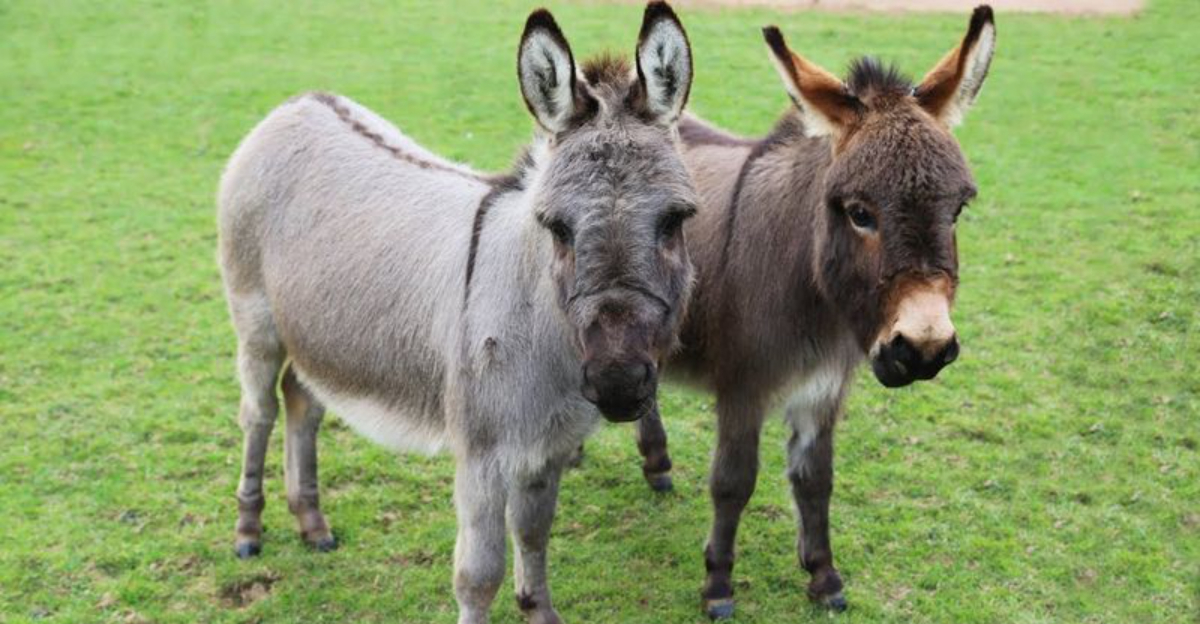In the city that never sleeps, one unexpected newcomer is helping New Yorkers finally relax — miniature donkeys. Standing a charming 36 inches tall, these gentle equines are quietly taking over the city’s skyline, one rooftop garden at a time.
Once reserved for cocktail parties and kale, these sky-high spaces now double as mini sanctuaries where stressed-out New Yorkers find comfort in the company of these therapy-certified companions.
What started as a quirky wellness experiment just two years ago has trotted its way into the spotlight — now, they’re the most sought-after amenity in luxury high-rises.
Tiny Companions With Giant Emotional Impact
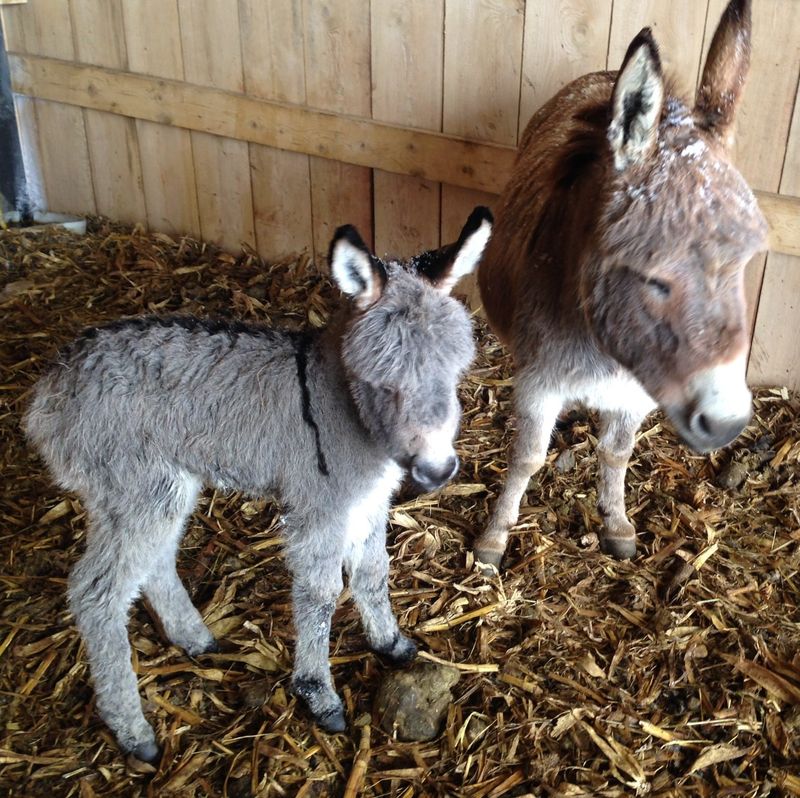
Miniature donkeys possess an almost magical ability to calm human anxiety with their gentle, patient demeanor. Unlike high-strung horses, these docile creatures maintain steady heart rates even in new environments, which helps anxious humans regulate their own emotional responses.
Therapists report that spending just 15 minutes with a mini donkey can lower blood pressure and reduce stress hormones more effectively than some medications. Their soft fur and warm eyes invite connection without judgment.
One Manhattan psychologist notes: “My clients make breakthroughs with donkeys they couldn’t achieve in traditional therapy sessions. There’s something about their quiet acceptance that helps people feel safe enough to be vulnerable.”
Small Spaces, No Problem For These Adaptable Animals
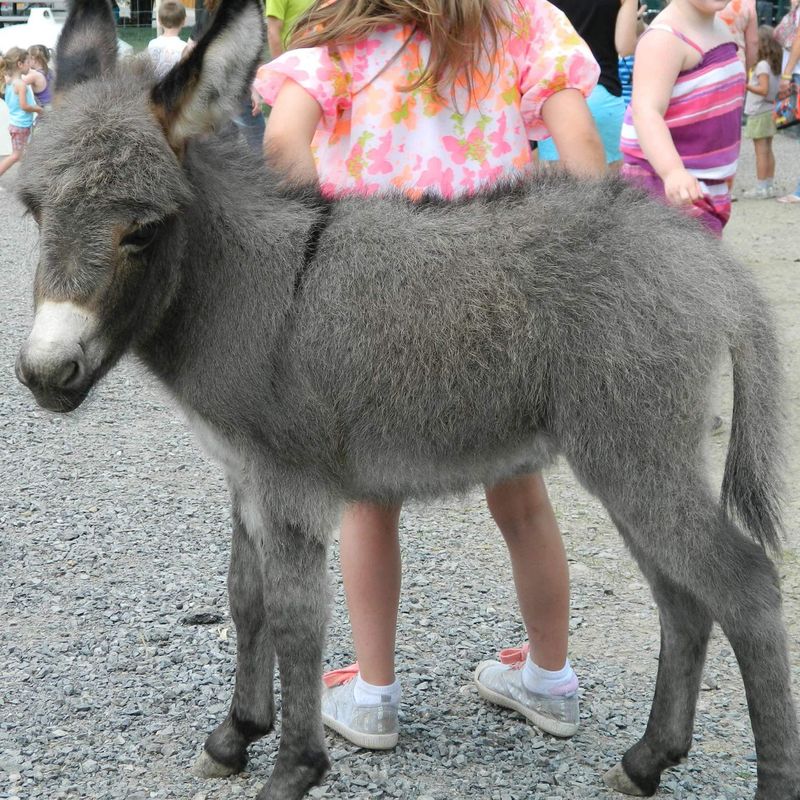
Manhattan’s cramped living conditions would challenge most farm animals, but mini donkeys thrive in compact environments. Their natural habitat in Mediterranean regions prepared them for limited spaces, making rooftop pens of 200-300 square feet perfectly comfortable.
Surprisingly agile, these animals navigate urban obstacles with ease. Building managers report minimal structural modifications are needed to accommodate them — just reinforced flooring and modest shelter areas.
“We thought we’d need major renovations,” admits Rafael Gonzalez, property manager at The Westerly. “But these little guys need less space than the dog park we already had. They’re actually easier to maintain than our rooftop pool!”
From Barnyard To Boardroom: Therapy Programs Embrace Donkey Power
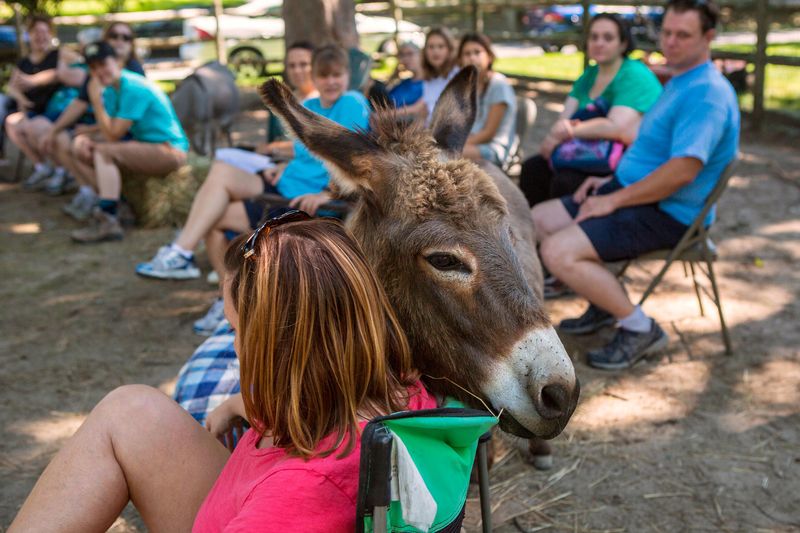
Fortune 500 companies are now booking regular mini donkey therapy sessions for employee wellness programs. Accounting giant PricewaterhouseCoopers reported a 23% drop in stress-related sick days after implementing monthly donkey visits to their Manhattan headquarters.
Hospital rooftops have transformed into healing spaces where patients interact with these gentle creatures. Memorial Sloan Kettering’s pediatric unit pioneered the movement, documenting improved recovery rates when children spent time with the animals.
“I was skeptical until I saw the data,” confesses Dr. Eleanor Park, chief of psychiatry at NYU Langone. “The physiological responses we’re measuring during donkey therapy sessions show results comparable to our most effective anxiety treatments.”
Going Up? How Service Elevators Became Donkey Express Lanes
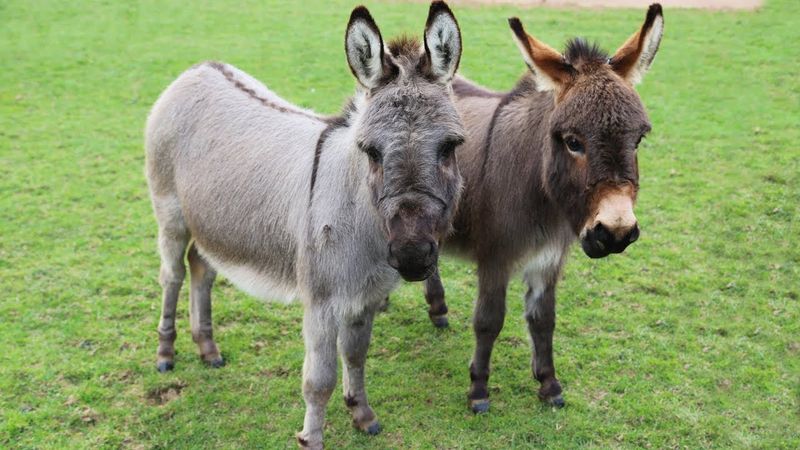
The logistics of transporting farm animals up skyscrapers initially seemed impossible, but NYC’s robust service elevator infrastructure proved perfect for the task. Most luxury buildings already had freight elevators designed to handle heavy furniture and renovation materials – easily accommodating the 200-pound mini donkeys.
Elevator technician Miguel Santos laughs recalling the first time he was asked to help. “I thought it was a joke! Now I’ve got a special donkey ramp in my truck. These animals are more relaxed in elevators than most people!”
Building codes required minimal adjustments, as the animals are classified as therapy animals rather than livestock. The Department of Buildings created a special “Rooftop Therapy Animal” designation to streamline permits.
Fast Friends: The Science Behind Human-Donkey Bonding
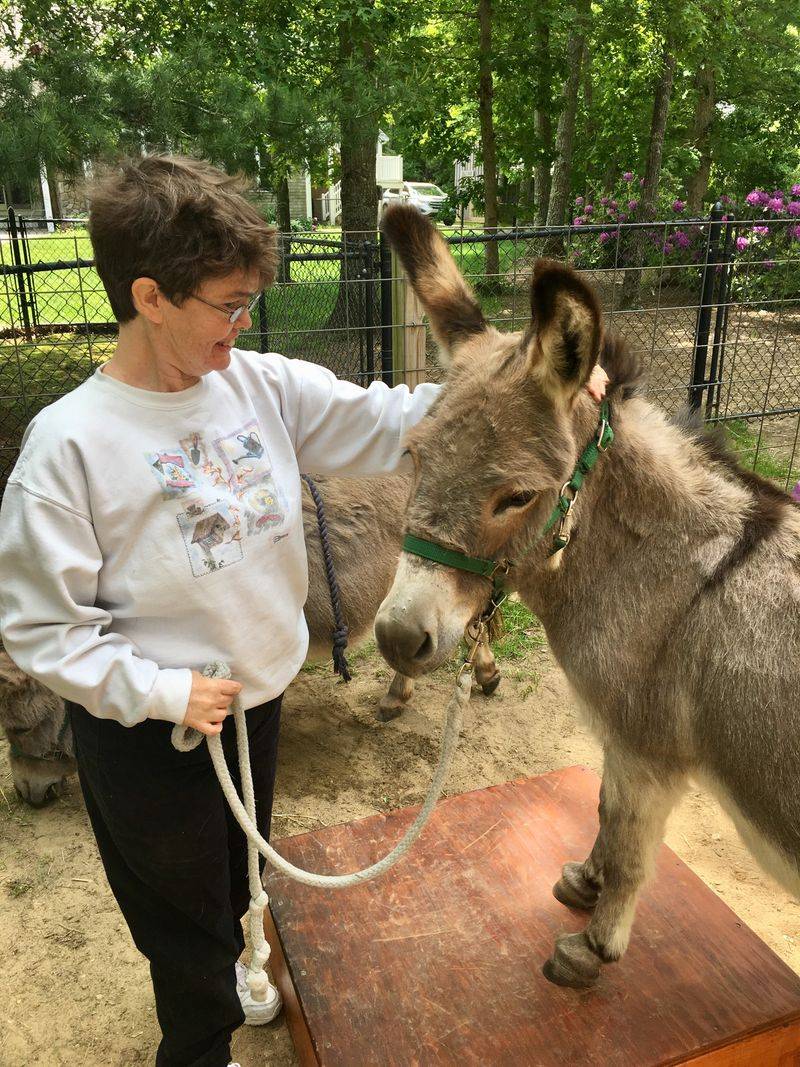
Research from Columbia University reveals miniature donkeys form attachments to humans faster than dogs or cats. Their evolutionary history as herd animals predisposes them to seek emotional connections, and they can recognize individual human faces even after months apart.
I witnessed this remarkable bonding firsthand when visiting a rooftop therapy session. Within minutes, a donkey named Pebbles positioned himself next to a visibly anxious participant, gently leaning against her until her breathing slowed.
“They’re emotional sponges,” explains animal behaviorist Dr. James Chen. “They absorb and neutralize negative emotions while amplifying positive ones. We’re still studying the mechanism, but the therapeutic effects are undeniable.”
Whisper Therapy: The Quiet Revolution In Animal Assistance
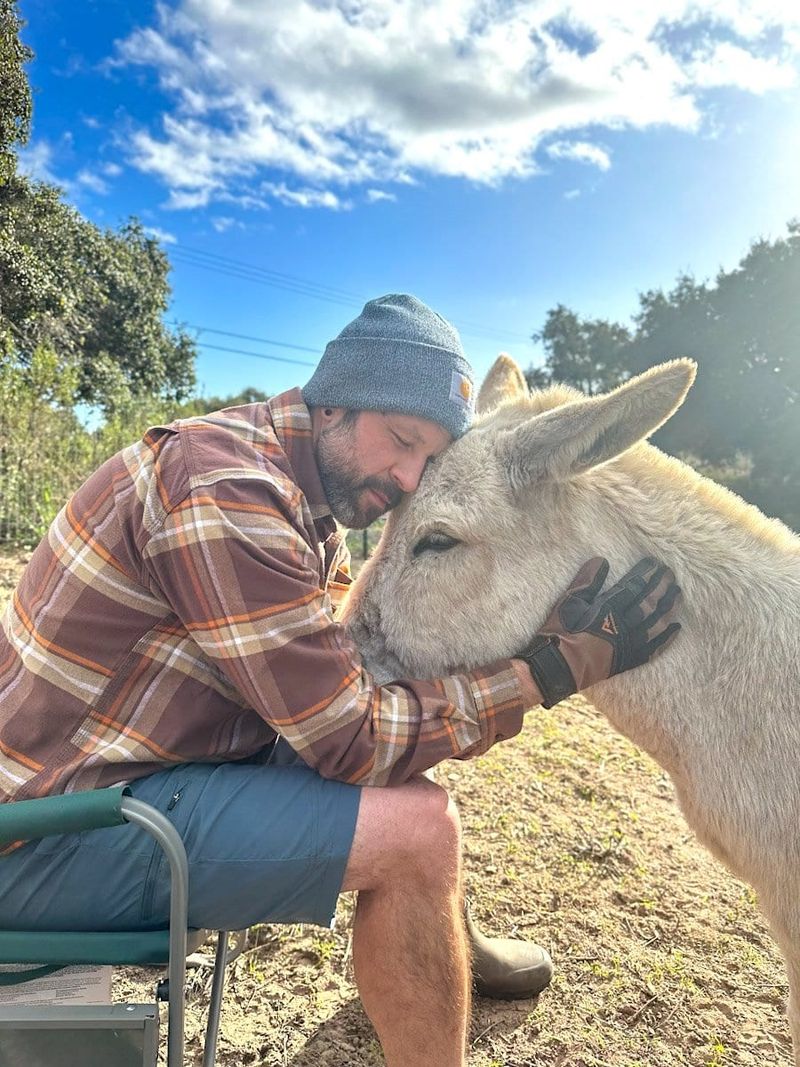
Unlike therapy dogs that might bark or cats that meow, mini donkeys communicate through soft whickers and gentle breathing sounds barely audible above Manhattan’s traffic. This quiet nature makes them ideal for noise-sensitive environments like meditation centers and therapy offices.
Sound engineers measured donkey vocalizations at just 30-40 decibels – quieter than normal conversation. Building residents report being unaware of the animals’ presence until encountering them in person.
“After our neighbor’s pandemic puppy that barked non-stop, the mini donkey next door is heaven,” reports Upper East Side resident Melissa Tanaka. “Sometimes I hear soft footsteps on the roof garden, but that’s it. They’re the ideal city neighbors.”
Urban Oasis: How Rooftop Gardens And Donkeys Form Perfect Partnership
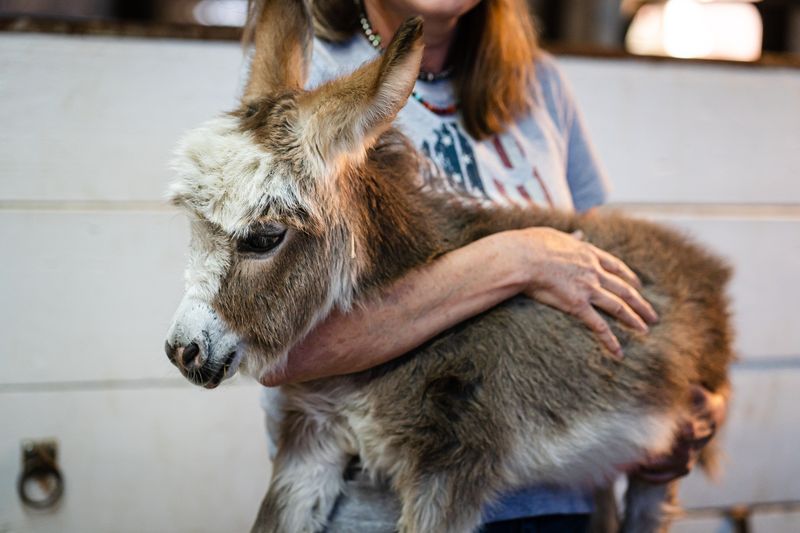
Mini donkeys have transformed rooftop garden designs across Manhattan. Landscape architects now craft donkey-friendly spaces with edible plantings that serve dual purposes — enhancing the visual appeal of rooftops while providing natural forage for the animals.
The donkeys’ manure creates premium compost for vegetable gardens, completing a sustainable mini-ecosystem. Several buildings report harvesting record tomato crops thanks to this natural fertilizer.
The Vertical Farming Association estimates rooftop gardens with mini donkeys produce 30% more yield than traditional urban gardens. “We never expected this symbiotic relationship,” admits urban agriculture specialist Priya Mehta. “The donkeys eat invasive weeds, fertilize the soil, and provide therapy – it’s the ultimate urban farming hack.”
